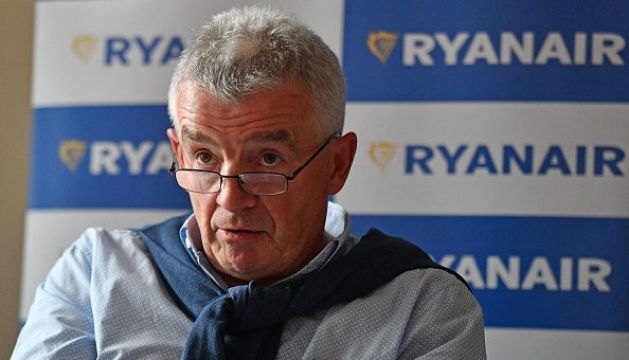Ryanair Group chief executive Michael O'Leary has said he sees no reason to cancel flights because of the Omicron variant of coronavirus and his airline's flights were heavily booked for the next few weeks.
"We are not cancelling any flights ... I don't see that [Omicron variant] as a justifiable reason to prevent people who are vaccinated or have negative PCRs" from travelling, he told a news conference in Lisbon.
"We frankly don't think there is risk to air travel within Europe from those people," he said, adding though that Ryanair was worried about some countries potentially shutting air travel, as was the case of Morocco.
His comments come as airlines scramble to limit the impact of the latest coronavirus variant on their networks, while delays in bookings are threatening an already fragile recovery for global tourism.
Stock sell-off
Shares in airlines bounced back with the rest of the market on Monday after a sharp sell-off on Friday when the discovery of a new coronavirus mutation took a heavy toll on stocks.
After a weekend of sudden border restrictions and route suspensions, analysts said the industry was waiting nervously as scientists assess the gravity of the Omicron variant – and preparing to wait even longer to mend its bruised finances.
"The hope for US and European carriers had been that opening the Atlantic would allow them to operate long-haul routes on a cash-positive basis but border restrictions make it even harder to get the demand in," said James Halstead, managing partner at consultancy Aviation Strategy.
The latest outbreak, first reported in southern Africa, dealt a blow to the industry just as it had recovery in its sights, especially following the easing of US-bound travel.
HSBC said it would put the sector's recovery back by a year.
Those in the front line include the interconnecting Gulf carriers and airlines like Lufthansa, which depends heavily on transit traffic at its Frankfurt base, analysts said.
Big carriers acted swiftly to protect their hubs by curbing passenger travel from southern Africa, fearing that a spread of a new virus would trigger restrictions from other destinations beyond the immediately affected regions, industry sources said.
"Your whole network is at risk when running a hub," Halstead said.
Bookings delayed
Singapore deferred plans to open its borders to vaccinated travellers from the United Arab Emirates, Qatar and Saudi Arabia because those countries are transit hubs for African travel.
Singapore Airlines said it had converted some of its flights to Johannesburg and Cape Town to cargo-only.
Qatar Airways said it would no longer accept passengers travelling from five Southern African countries but would fly passengers to those countries in line with current restrictions.
Southern Africa, where Omicron was first detected, accounts for only a tiny portion of the world's international travel, but Israel and Japan have announced border closures to all foreign travellers and Britain and Australia have tightened rules for all arrivals in response to the new variant.
Concerns have also been raised about future bookings.
In Germany, DER Touristik said that after very positive bookings at the beginning of autumn it had seen a reluctance to book, including for southern African destinations.

Jeremiah Wong, senior marketing communications manager at tour agency Chan Brothers Travel in Singapore, said some concerned customers had called to enquire about options for upcoming Australia trips due to the new isolation requirement.
"At this moment, the observation is that people are still keen to carry on with their travel plans, because they have been planning for this for a long time," he said. "We have not received any calls of concern for Europe tours."
Some companies seemed exasperated by the latest threat to business as usual, just when the industry had won a respite.
"It's too early to make any predictions," a spokesperson for IAG-owned Spanish carrier Iberia said.







